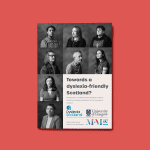Closing Date: 30th Nov 2025
Description
University of Greenwich: I am a PhD researcher at the University of Greenwich and a dyslexic adult learner. This study explores how students like us experience higher education, especially when using assistive technologies and AI tools to support memory, learning, and confidence. Participants are invited to complete a short, anonymous survey about their learning experiences, including any challenges with memory and the support they have received. There is also an option to express interest in a follow-up interview or focus group, but this is completely voluntary. The aim is to better understand how these tools are helping dyslexic students in real academic settings, and how they could be improved to meet our needs more effectively. The survey is open to anyone in the UK who identifies as dyslexic and is currently studying, or has studied, a college or university-level course.Although there is no financial incentive, this research offers participants the opportunity to contribute their voice to a project focused on improving future support and understanding of dyslexic learning experiences in higher education.
Contact: Ayo Bamgbose [email protected]

